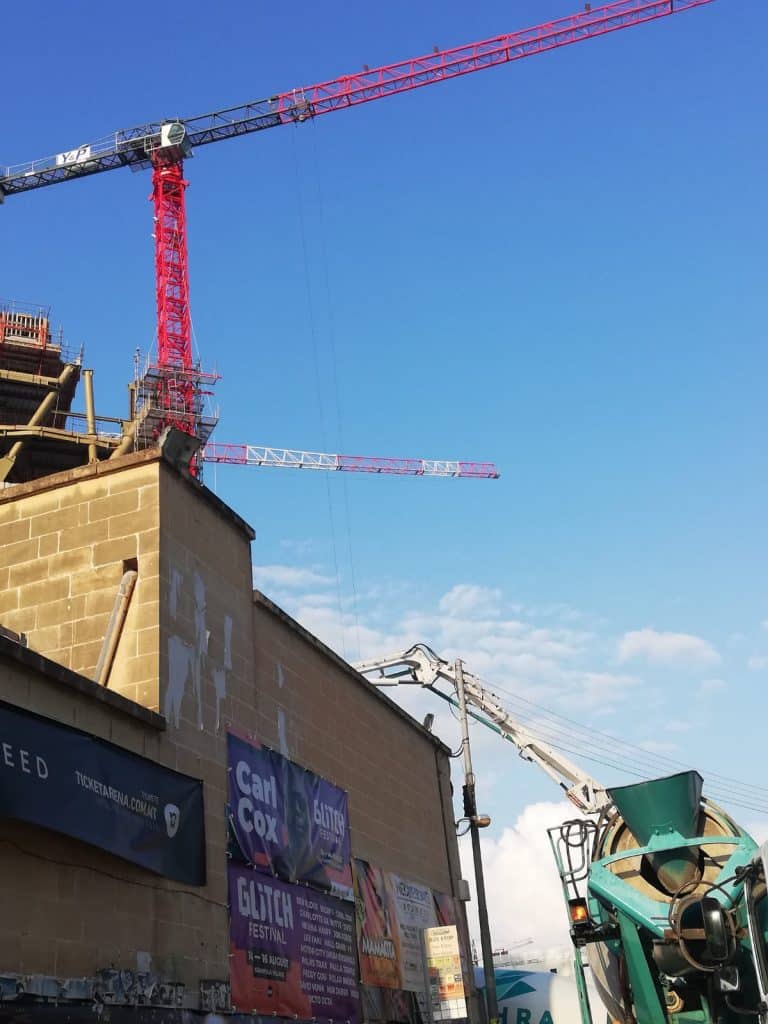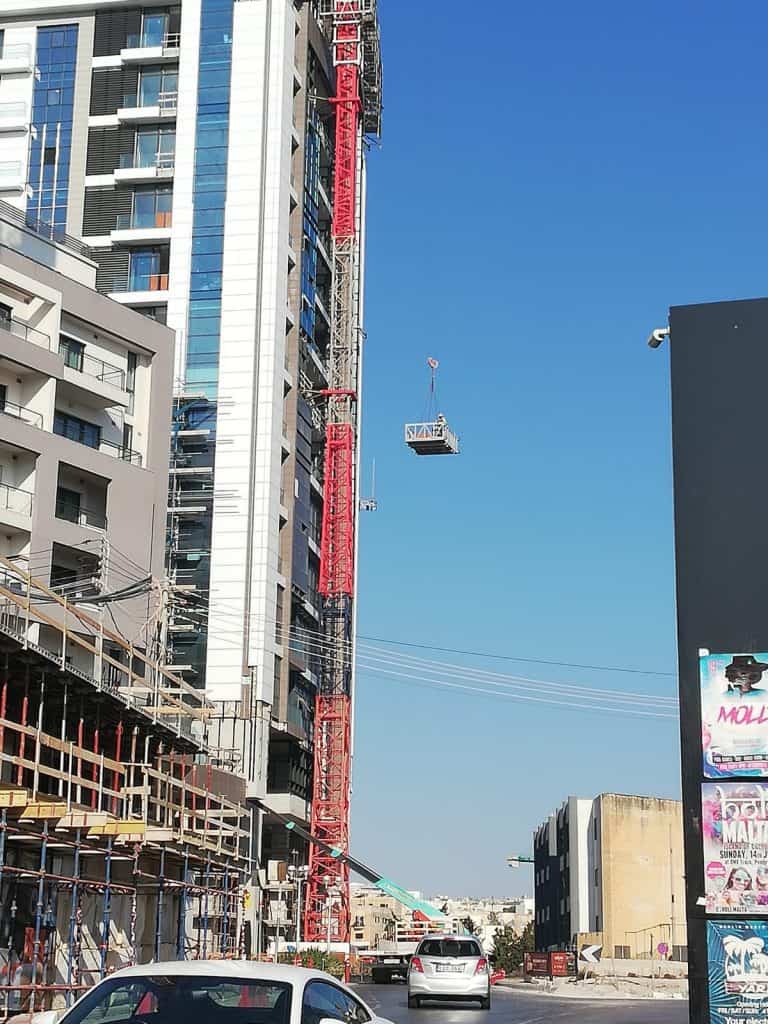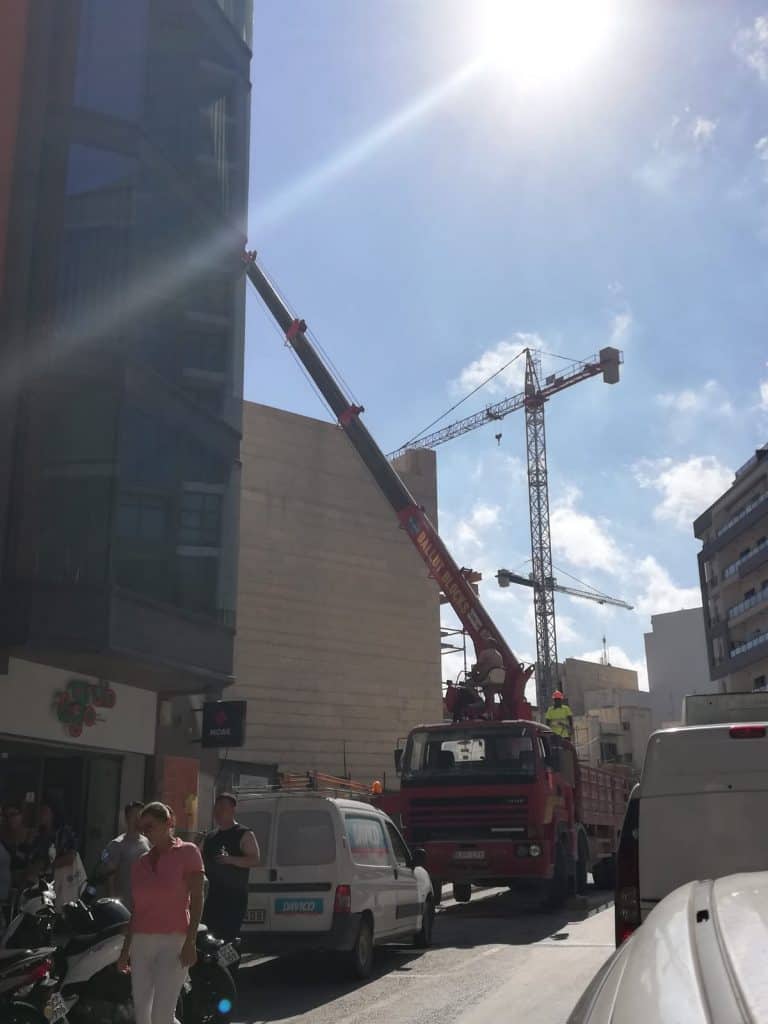If you haven’t watched The Laundromat yet, I highly recommend you do. It’s a film based on the Panama Papers starring Meryl Streep who dedicated her performance to Daphne Caruana Galizia, a journalist ‘killed while collecting Panama Papers information.’ This tribute was made before the arrest of Yorgen Fench whose offshore company 17 Black was set up to pump money into the Panama accounts of Keith Scehmbri, incriminated in the assassination but still successfully evading arrest, and Konrad Mizzi who, after having his lucrative MTA job removed, seems to have disappeared into one of the many invisible companies he set up. No doubt he’ll be back. Hopefully on trial.
In The Laundromat, there’s the little guy, played by David Schwimmer who everybody knows from Friends. It’s a small role but crucial. He’s the one who takes out insurance for the boat that sinks, drowning the husband of Meryl Streep’s character and setting in motion the action of the film. And the action delves right into the world of Mossack Fonseca and the fake signatures all over the equally fake companies which sprang up all over the world, with a particular fondness for the British Virgin Islands, the Bahamas and yes, you’ve guessed it, Malta, where we had our very own Mossack Fonseca aka Nexia BT. While their Panamanian counterparts were closed down in disgrace and Mossack and Fonseca spent time in jail, Brian Tonna and Karl Cini are conducting business as usual, possibly dragging up as Jacqueline Alexander for carnival. Look out! There’s Egrant behind you!
David Schwimmer’s little guy only tried to get a cheaper insurance deal. He didn’t mean any harm by it and he didn’t intentionally do anything wrong. The problem was that the company who provided him with protection wasn’t really a company after all but one of those shell things that hides the identity of another company hiding the identity of another company ad infinitum. Who’s the UBO? Nobody knows. Who’s going to take responsibility? Nobody.
This takes us slap-bang into the world of Egrant, and Tillgate and Hearnville, and 17 Black, whose owner is now charged with complicity in the assassination of Daphne Caruana Galizia naming Schembri as his co-conspirator. Surprising Joseph Muscat refused to give him a pardon, isn’t it? Not that it’s normal in a normal country for a Prime Minister to be doshing out pardons, especially not when that same Prime Minister is heavily implicated in the crime concerned.
For David Schwimmer’s little guy it wasn’t normal to discover that the insurance company he’d put his faith in, and relied on to safeguard the lives of those people on that boat, wasn’t going to pay out when an unexpected wave caused disaster. You can see him visibly shocked and failing to understand what the hell’s going on. He had no idea this would happen just as he had no idea that a fun day out would end in tragedy. And as he comes to terms with the reality of this unreality, we, the audience, do so, too.
For a Maltese audience, or one that doesn’t rely on One TV for its updates, the scenario of The Laundromat is horribly familiar. It’s like watching our own story unfold on the screen: the smoke and the mirrors, the illusions and the lies, as all that is solid melts into air. It doesn’t matter how many rabbits this government pulls out of its hat. It’s a box of tricks and it kills.
Miriam Pace was killed this week. She was trapped beneath the rubble of her home. She was killed on her son’s 25th birthday. She was killed by a government who celebrate by exchanging Bulgari watches and Petrus wine or getting on down at a €28,000 Portomaso party. No expenses spared for a post-assassination knees-up by the guy now charged with this assassination. No price too high when it comes to saying thank you to your political buddies for extending that financial deal on Electrogas. Electrogas – the company Caruana Galizia was investigating when she was killed.
And Miriam Pace is part of this same deadly plot. She’s part of the same blood-stained roadmap by which the Partit Laburista came to power and which continues to guide their reckless way through every home they destroy, every tree they massacre, every business they plunder, every sickness they cause to sustain Malta’s record for the worst rates of asthma, the highest rates of CO2 emissions, and their renowned disregard for the rule of law.
And it’s always the little people who suffer, those of us who go about our business as usual without imagining for one moment that the things we take for granted in a European country will abruptly disappear. Simple basic things like that roof over your head.
That’s the trouble with corruption. That’s the trouble with impunity. That’s the trouble with a criminal organisation taking charge of a country and robbing its people blind. Our vision becomes blurred and our expectation of normality gets distorted. We start accepting things that others would refuse. We start cutting corners to cope with the corners that are being hacked off by the construction bandits who eat away at our ever-diminishing comfort zone until relief is the cessation of lethal machines in cynical respect for a woman whose death was caused by these. Like a murderer placing his knife beside the coffin.
In a normal country like, say, Germany, if major construction work such as drilling a 7-storey underground car park right beside a language school – one of the biggest language schools and housing hundreds of staff and students – preparations and regulations would be observed. There would be some negotiation between the contractors and the school and, assuming the school was happy, some form of compensation would be offered for the gross inconvenience this would cause. This gross inconvenience wouldn’t include leaving the school to try and function while a massive pit is drilled out beside it which, to any layperson without the faintest understanding of engineering or architecture, would obviously be a major risk. When Arriva arrived, for example, we all knew the bendy buses were too big for our roads. It’s not rocket science.
In a normal country, with normal building regulations and normal health and safety standards, the whole area would be cordoned off and the school relocated to other premises at a cost to the private building contractors. I mean, they’re not building a hospital. They’re not building something of vital service to the community. It’s a private company drilling car parks and building apartments and garages and god knows what for god knows whom because who the hell would want to come to a country where visitors, in the profitable form of language students, are knowingly placed in a position of potential danger? What kind of advert is this for Konrad Mizzi’s tourist economy?
And there’s the rub. Mizzi’s economy is the house built on the sand. Muscat’s prosperity makes us poor. Schembri’s freedom places us in chains, slaves to impunity, bound and gagged by its laws.
EC isn’t the criminal in this conspiracy. EC is the victim of all the other crimes. It didn’t order or authorise the construction work placing its own premises in peril. When pirates loot your boat, they don’t ask permission first.
We could blame EC and ask why they didn’t stand up to the bullies but then we’d need to keep pointing fingers right the way across the island. Why didn’t you stop that tree being felled, that historical site being massacred, that journalist being assassinated? When you’re in a situation where impunity reigns, it’s no holds barred. Anything goes, including the foundations of your home.
EC were up shit creek without a paddle so they tried to bail out in a situation not of their own making. Just as David Schwimmer’s guy tried to cut costs, so EC aimed to minimise the damage and reduce the negative financial impact this would have on their business because, after all, it’s a business.

EC tried to make the best of a very bad deal and a very dangerous deal, as we saw for ourselves in that terrifying photo.
While taking expert advice on its safety, EC kept both their buildings open as construction workers set about their task destroying half of the pavement, erecting a high border wall to obfuscate the view, tearing out huge chunks of rock as they dug deeper and deeper below the ground. The drilling, according to one source, made the building in that photo, perched on the precipice, shake ‘like a leaf’.
There are varying reports about when classes stopped being held in that building. All say this occurred more or less when construction work started at the end of last year. But one harrowing account describes the building shaking very badly during a lesson, instilling instant panic in everybody there.
Shortly after this alleged incident, all classes were scheduled in the opposite building (East) but entry to West wasn’t barred. Tutorials and free lessons were delivered there, cleaning staff still cleaned the building nightly, and teachers used the staff room as their base.
Students also needed access to the academic staff who, like their teaching colleagues, were only evacuated the day after the brutal death of Miriam Pace, the same day the photo of the building hit the news. That same day, a press announcement was made by the school’s chairman, Andrew Mangion, relaying the decision ‘to move the last remaining EC staff out of the building as a precaution.’ Granted decisions take time to come into effect but some staff members got this news while reading the article that evening in the very building they were supposed to evacuate.
Some EC staff say they never felt the building shake, they felt safe, and that now the move’s taken place, everything’s fine. Other stories evoke a sense of fear although no formal complaints have, as yet, been made. Some staff have raised concerns about the East building – the one marked as safe and used by staff and students as we speak. Sources claim that this building also vibrates, especially if you stand near the window which can’t be opened because of the construction work. Not surprising really. You can’t dig 7 storeys beneath the ground in a narrow street with 2 buildings very close to each other with cafes where people relax while cars drive past and describe it as a damage limitation exercise.
It’s like dominoes, isn’t it, or that fateful house of cards. And it’s that little guy, trying to salvage what he can from the rubble, who ends up crushed. The little guy who, faced with the forces of corruption, behaves in ways he wouldn’t do under normal circumstances simply in order to survive. Powerless in the face of impunity, EC may, albeit unwittingly, have placed its staff at risk by a series of bad choices imposed on them from outside. Even those who claim they didn’t feel the building shaking acknowledge that people were forced to carry out their daily work to the constant sound of drilling which, apparently, felt like it was coming from inside.
The actual dangers may not have been fully grasped until that nightmarish photograph emerged but it’s that trickle-down effect, isn’t it, where to mop up the damage created by those above, you’re left exposed to their life-threatening debris. Any insurance policy from the property developers may have simply fallen off the back of a construction lorry. At EC, drilling work began on cue at 7am Tuesday morning, only hours after the body of Miriam Pace had been lifted from the rubble of her home.
Squeezed into one building to facilitate the demands of the great gods of construction, the teachers’ staff room has taken over a tiny space designed as a multi-faith prayer room. If all else fails, pray, pray now that in this new location, the Paceville Tower doesn’t topple on your heads.


Sources cited in this article include both teaching and academic staff. Full disclosure: I worked as a teacher at EC between 2010 and 2019.